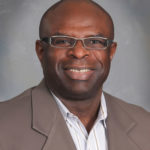(This article by Dr. Caleb Nwosu, Physician and Medical Director at Keystone Urgent Care, first appeared in the August 9th Public Opinion Newspaper – www.publicopiniononline.com)
More than 45 million Americans suffer from headaches severe enough to seek the help of a physician, according to the National Headache Foundation. Depending on the type of headache, symptoms can range from a small annoyance to debilitating. When should you seek treatment for a headache?
National Headache Foundation. Depending on the type of headache, symptoms can range from a small annoyance to debilitating. When should you seek treatment for a headache?
Types of Headaches
There are three primary kinds of headaches – tension, migraine, and cluster. Tension headaches are dull pressure or tightness often caused by tight muscles in the shoulders, neck, scalp or jaw. These headaches are on both sides of the head and sometimes neck. Migraines are mild to severe throbbing, pounding or pulsing that can occur on one or both sides of the head and can last up to 3 days. This type of headache usually includes nausea and light sensitivity. Cluster headaches are sharp, painful headaches that develop rapidly on one side, usually around or behind the eye once or more daily. Headaches can also be caused by sinus pressure, infection or vascular disease.
When to Seek Help
Most headaches can be treated with over the counter pain relievers but some require medical attention. If you experience sudden headache pain with peak intensity occurring within several minutes, you should be evaluated by a physician immediately. You should also consult with a health care provider if you experience a headache that occurs with cough or exertion, including during sexual intercourse, or any headache associated with neurological problems such as changes in mental status, seizures, visual disturbances, tenderness of the temporal artery, and neck stiffness. You should also report to your health care provider if you experience the worst headache you have ever had, especially if you are over the age of 50.
Some headaches can be challenging to diagnose because symptoms can overlap. Your health care provider will want to complete a thorough health history and may require a physical, neuro-imaging, or other testing to determine the cause and treatment of your headache.
Treatment and Prevention
If you go to a walk in clinic or emergency department for treatment of a headache, after treatment you will be referred to your family physician for follow up. If necessary, your family physician may refer you to a specialist for further evaluation. If you experience headaches frequently, it’s important to learn if certain things trigger the start of a headache. Sometimes low blood sugar, severe stress, and lack of sleep can contribute. For migraine sufferers, some types of cheese , alcohol, and food additives can also trigger a headache. These symptoms vary from person to person.
Dr. Caleb Nwosu is physician and medical director of Keystone Urgent Care located at 830 Fifth Ave in Chambersburg.




